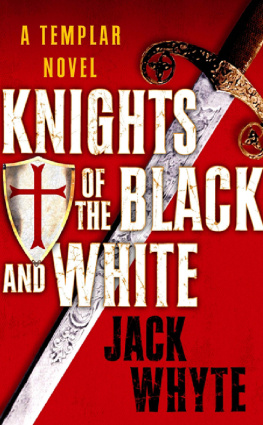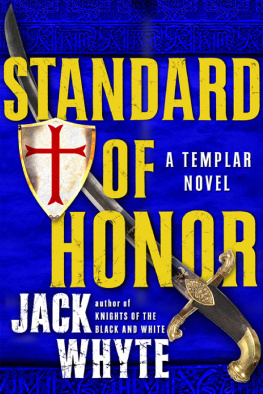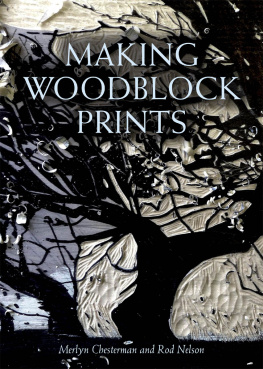
To my wife Beverley
and to my grandson, David Michael Johns, who finally got old enough to read his Grandpa's books
MAP LEGEND
1. Glannaventa (Ravenglass)
2. Mediobogdum (The Fort)
3. Galava (Ambleside)
4. Manx (Isle of Man)
5. Brocavum (Brougham)
6. Mamucium (Manchester)
7. Deva (Chester)
8. Lindum (Lincoln)
9. Londinium (London)
10. Verulamium (St Albans)
11. Corinium (Cirencester)
12. Glevum (Gloucester)
13. Aquae Sulis (Bath)
14. Lindinis (Ilchester)
15. Camulod (Camelot)
16. Venta Silurum (Caerwent)
17. Isca Silurum (Caerleon)
18. (Cardiff)
19. Nidum (Neath)
20. Moridunum (Carmarthen)
21. Cicutio (Y Gaer)
22. (Castel Collen)
Key: Roman place names (English/Welsh in brackets)

The Legend of the Sky Stone *
Out of the night sky there will fall a stone
That hides a maiden born of murky deeps,
A maid whose fire-fed, female mysteries
Shall give life to a lambent, gleaming blade,
A blazing, shining sword whose potency
Breeds warriors. More than that,
This weapon will contain a woman's wiles
And draw dire deeds of men; shall name an age;
Shall crown a king, called of a mountain clan
Who dream of being drawn from dragon's seed;
Fell, forceful men, heroic, proud and strong,
With greatness in their souls.
This king, this monarch, mighty beyond ken,
Fashioned of glory, singing a song of swords,
Misting with magic madness mortal men,
Shall sire a legend, yet leave none to lead
His host to triumph after he be lost.
But death shall ne'er demean his destiny who,
Dying not, shall ever live and wait to be recalled.
Threats against the life of the young Arthur Pendragon have forced Caius Merlyn Britannicus to take the boy away from Camulod. With a small group of followers he travels to the port town of Ravenglass, in far north-western Britain, looking for sanctuary.
In exchange for the promise of military support, King Derek of Ravenglass agrees to let Merlyn and his followers make their new home in a long abandoned Roman fort high on a mountain plateau, an isolated place known as Mediobogdum, meaning "in the bend of the river." In order to deflect attention, Merlyn then surrenders his identity as the party's leader and, to the outside world, he and Arthur become known as the farmer "Master Cay" and his young ward. With the help of his closest friends and companions, Merlyn teaches Arthur about justice, honour, his Christian faith and the responsibilities of leadership.
Arthur begins to show the wisdom, common sense and regard for justice that will one day make him a legendary king, and Merlyn sees the day fast approaching when the boy will need to wield the king's sword, Excalibur. Arthur is taught the techniques that will enable him to fight with the new sword, while the smiths in Camulod, in utmost secrecy, fashion two new practice swords from the last of the skystone metal, weapons that will be identical to Excalibur in everything but its glorious appearance.
Merlyn enjoys many peaceful years in Mediobogdum, luxuriating in the new love he has found with Tressa and watching Arthur, along with his constant companions Gwin, Ghilleadh and Bedwyr, grow towards manhood. Connor MacAthol, whose fleet has been transporting King Athol's Scots to their new lands in Alba, comes often to Ravenglass and
keeps him up to date on affairs in Eire, while Merlyn's
brother Ambrose visits when he can bringing cheering news of life back in the growing community of Camulod. The only matter that troubles Merlyn is the mark on his chest that he fears might be leprosy, until the physician Lucanus consults his medical authorities and declares it benign, putting Merlyn's mind at rest.
But beyond their peaceful isolation, violent forces are rising to threaten the tenuous peace of Camulod Ambrose sends word one day of trouble in Northumbria, the land of King Vortigern. Vortigern's Danish ally Hengist is dead, and the fragile peace that existed there is now threatened by the advances of Hengist's hot headed son Horsa and his landless, discontented warriors. More urgently, the powerful forces of Merlyn's old enemy Peter Ironhair are gathering strength in Cornwall, while in Cambria, Dergyll ap Griffyd, who rose to lead the Pendragon people after the death of Uther, has been killed by Ironhair's ally, the monstrous Carthac, who has a claim to the Cambrian kingship. Merlyn further learns that a former comrade, Owain of the Caves, might have been acting as a spy for Ironhair in Camulod. Does Ironhair know where Arthur is hiding, and will he seek to have the boy killed, seeing Arthur's claim to Cambria as a formidable threat to his ambitions?
Fearing for Arthur's safety, and concerned that the future king's education can go no further in their remote home in Mediobogdum, Merlyn makes the decision to return with his party to Camulod in the spring and prepare to meet Ironhair in battle.

PART ONE

Camulod
ONE
There is no more important day in a man's life than the day he formally takes up a sword for the first time. At that fateful and long anticipated moment when a youth extends his hand for the first time, witnessed formally by both his elders and his peers, to grip the hilt of the sword that will be his own, his life and his world are changed forever. In the eyes of men, he has become a man, and his boyhood is irrevocably and publicly discarded for all time, much like the shed skin of a serpent. Far more important and traumatic than his first knowledge of a woman, the commitment of taking up the sword is the last and greatest rite of the passage across the gulf between boyhood and manhood.
Arthur Pendragon's transition, and the ritual entailed in it, was a source, for me at least, of joy, wonder, great satisfaction and an immense, deep glowing pride. It has been extremely difficult to condense into mere words. A score of times I have set out to write of it and ended up with ink stained fingers, a blotted, much scratched sheet of papyrus and a quill destroyed because its feathered end is chewed, matted and soggy with my own sucking. Only recently, after many attempts, have I been able to assemble a coherent account of the occasion, and of the events leading up to it, from countless scraps and annotations. Even so, I fear it resembles less a chronology than an anthology of incidents and impressions. Each of those incidents, however, had a direct bearing upon the way in which Arthur came to that threshold of manhood.
Did ever a more alienating gulf exist than that which stretches between boy and man? Few things can be more difficult or vexing than the task a grown man will face in the attempt to recall how it felt, or what it meant, to be a boy. The very coin of life in which the two must deal is different. Boys in their prime, between the ages of eight years and twelve, are yet unburdened by sexuality; they are consumed by other, no less insistent forms of curiosity, and are intent upon learning and discovering everything there is to know about being male and potent, powerful and victorious. Men, on the other hand, may still be curious in their prime, but all their curiosity is tainted by their sexuality: for the ruck of men, all that they do is dominated by the urge for gratification of their sexual needs.
Next page








